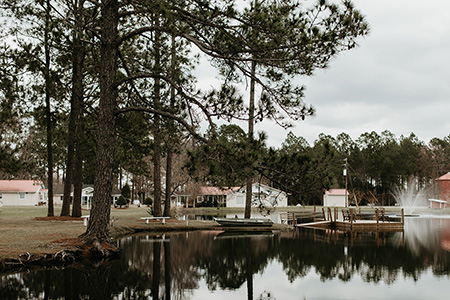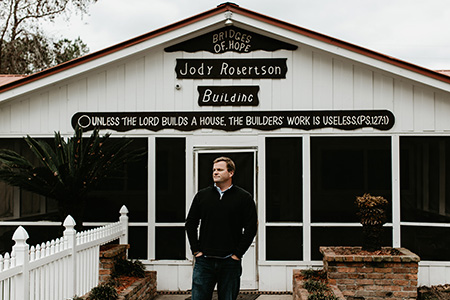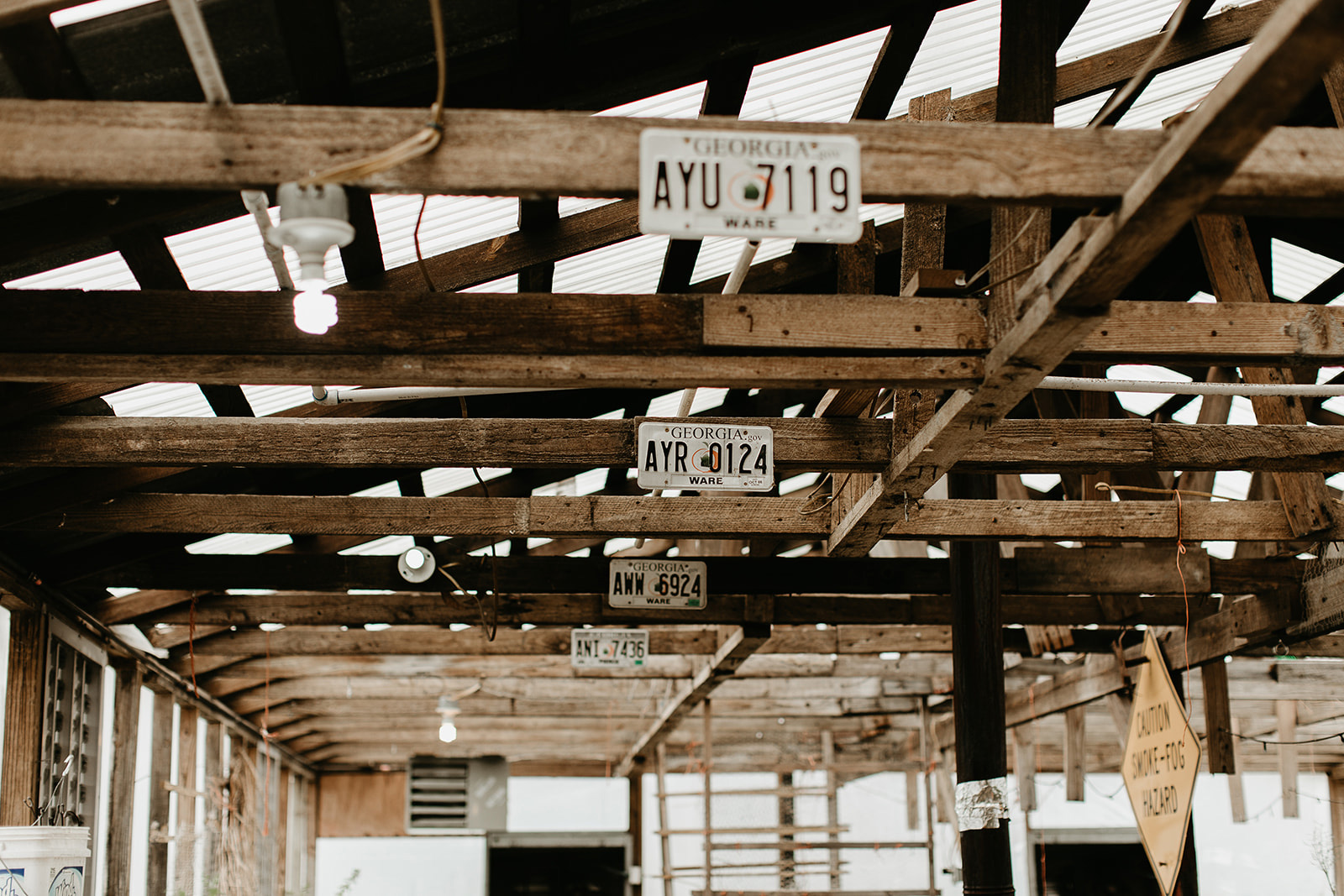By Megan Maxwell
Addiction began to sink its teeth into Robby Horsley at the tender age of 16. The first time he drank led to several days of suffering through alcohol poisoning and shortly after that he found his way into an exhausting double life. He was a sharp young man: he was athletic, respectful, and known all over the southeast for his golfing abilities. With that kind of a profile, it was understandable that shock rippled through his town when he was arrested in the 10th grade for possession of cocaine. “I was selling cocaine and I was using cocaine. It grew to be a $1000.00 a week habit…and nobody knew,” Robby said. When the cops interviewed him they noticed his calm demeanor and asked why he seem to be unbothered by the situation and Robby responded by saying, “Because I know you are probably saving my life.”

For nearly two decades after his arrest, Robby found himself seemingly stuck in the cycle of addiction. He would receive help from a rehab facility, halfway house, probation or a set goal in his mind. Once he had reached his short-term goal and was reintroduced to the real world, he would crumble under the stronghold addiction held over his life. He desired to change but falsely assumed that he could do it alone. His lifestyle was tiresome and poisoning not only him but to everyone he loved as well. “There is not enough motivation in this world to break an addiction, I know now that just wanting to change isn’t enough. It requires more than that.” Robby calmly said.
When Robby was 23 years old, he fell in love with a woman who had three children and soon after became a father to a son of his own. “I thought, ‘Okay, this is it! I have to take care of a family now. Surely I will not live this way when I have children to be responsible for.’” He thought that being responsible for a family would be enough motivation to save him from his impulsive addictions and toxic lifestyle and it was, at least for a time.
“Sometime around 24 or 25 years old I became addicted to oxycodone,” Robby exhaled in exhaustion as the memory of the pain-killing drug crossed his mind. All of the other drugs he had experienced paled in comparison to this narcotic. “I would want to do cocaine but I was not physically dependent on it like I was opioids. I was at a point where I was desperate to stop but there was seemingly no end to the nightmare.”
After trudging through life numbly for a few years, his heart was jolted back to reality by a house fire that consumed almost everything he owned. One of the four children had placed a Barbie in the space heater which burst into flames. The space heater was thrown onto the porch and met by whicker furniture and a 5-gallon can of gasoline. In a matter of minutes his life was in ashes. His partner loaded up the kids and moved back to her parents’ house while Robby moved back to Charleston, found a job and saved enough money to get an apartment for his family to start over together again. “I did great when I had a goal, but once the goal was accomplished I went back to what was comfortable. In a matter of only two months I had lost every bit of what I worked for,” Robby said.
He moved to Atlanta and began to treat his opioid addiction with the alternative drug of methadone. Once he had exhausted that method, he took a job in a glass plant where his starting pay was $9.00 an hour. By the end of that year, he was making $50,000 annually. However, just like any other falsified solution, methadone was a Band-Aid instead of a cure for the deeply rooted problem and Robby eventually caved again. After about three months of abusing drugs, life punched him in the gut and he lost everything…again. Except this time it included his family and son.
Robby was mentally, physically and emotionally at the bottom again. After moving back to Charleston to work for a few months he received an unexpected call about his son. It was a truancy case, and it turns out that the mother was in trouble and his son had missed an unreasonable amount of school. “I had him out of wedlock and my name was not even on the birth certificate. I was asked to take a drug test and by the grace of God I passed and received custody of my son.”
Robby had something to live and fight for again, so he moved back in with his mother where she held his hand through the painful process of getting off of methadone. “For 3 years I had no pain receptors and then everything just hit me all at once,” he said. It took him days to simply be able to walk outside of the house. It took him about 6 weeks to feel well enough to go through a day without having severe withdrawal symptoms. But once again, Robby resiliently fought his way back. He had another chance at life, but after a little while he began to dabble in drinking again.
He was given a few more chances and addiction ripped each one out from underneath him. At this point he was 35, alone and tired of fighting. He was unable to take care of himself, much less his son. Those who loved him were just as hurt and tired as he was. He did not want to hang on anymore and often times thought of how easy it would be to just let go. In the midst of Robby wrestling with guilt, feelings of unworthiness and lack of self-esteem, he had an unlikely friend commit suicide. He said, “She had a great life! I thought, if the result of what she was going through ended there, what was going to happen to me?” Something inside of him snapped. He was tired of fighting not only addiction but also himself.

“Most people do not get help until they don’t have any other option,” Robby said. One night while intoxicated, with all his resources tapped, he broke down and called his mom to tell her he was ready to get help. Up to that point he held the false belief that he would become “struck sober.” He thought he could give it to God and He would take the problem away from him without having to fully surrender and put in the work. “God had to take absolutely everything away from me so all I had left to reach for was Him. I count it as a blessing because that is what it has taken to save my life.”
Robby was a resident of the Bridges of Hope Recovery Center in Homerville, Georgia twice before but this time was different. The letters and calls from family stopped. There were no job offers and no cop-outs, just Robby facing himself. “I remember wondering if God loved me at all,” he said. In hindsight, he sees that God actually loved him enough to allow life to break him down so He could be his strength at his weakest. Jesus was his friend when he was completely alone and the healer of his heart when he could not fight anymore. Robby slowly began doing the spiritual and behavioral work through the twelve steps program. He woke up every day, shaved his face, did his chores and for the first time ever, surrendered his heart for a complete life change. “Before this point in my life, I always saw God as some sort of Santa Clause God. Do good, get good. Do bad, get bad…my perspective on that has changed a bit,” he grinned. Robby finally found the courage to lay his brokenness on the table before God and accept that he would never be strong enough to change on his own. And God met him in his brokenness.
Homerville is one of Highland Ag Solutions customer communities and in the pursuit of finding ways to give back, Epic Affect stumbled upon Bridges of Hope. We did not know what to expect when we arrived at this secret oasis of tough love and second chances. We went simply to learn more about the program.
As we walked through the screen door that slapped shut behind us, a blue-eyed, sharply dressed young man met us. He welcomed us by shaking our hands and saying, “Hi, I’m Robby Horsley and I am the manager here at Bridges of Hope!”
…………
It is easy for one to look at an addict and think things like, “They did this to themselves” or “They just need self discipline” or “They are just being selfish.” While there is some truth to all of those statements, there is a large portion of the story we are missing. Did Robby fight back every time because he wanted to fall again? Do we know that addiction is a neurological reaction and not just a desire that can be quashed over night? Would we treat others differently if we realized that all humans are addicts in some shape or form? We have all found ourselves in a self-induced cycle of destruction. Our addictions may look like negative thoughts about ourselves, a toxic relationship we keep going back to, a mental or physical disorder that consumes our lives, the impulse to gossip, having judgmental tendencies, frequently lying to the point that we aren’t sure why we are even lying, obsessing over our image or morphing into whatever we think will make others happy. The list goes on, but the bottom line is that we are all addicts. We are all slaves to ourselves in some way. Our organization’s hope is that we grow to see addicts as sick and not selfish, enslaved and not irresponsible. When we see them in that way, it is a natural reaction to be compassionate. If you are struggling with an addiction, big or small, there is good news: you are not broken, you are human, and there is hope for you. Do not give up on yourself because this world is in desperate need of you.

Robby is a perfect example of God not wasting a hurt. Experiences that most would view as negative or degrading are now cornerstones in his life. He is able to walk alongside hundreds of men who are fighting battles in the same war because he has the scars to show that survival is a possibility. He views every bit of his past as a gift. His life lessons and failures are no longer weapons used against him, they are his ammunition to help others.
Robby recently went on vacation to Florida with his teenage son. They went to a tiki-bar restaurant by the beach where a live band was playing and people were having fun. “It’s still not easy. God has restored so much but it is still a fight and I sometimes struggle with the guilt of missing so much. I remember I was listening to the band and watching people laughing and drinking and I was starting to feel sorry for myself. Then out of nowhere they began playing the worship song ‘Chain Breaker’ and I started crying right there in the restaurant,” he said. Temptation will always come in waves, but with hard work, complete surrender and drawing strength from something that is bigger than us…there is no chain that cannot be broken.
Ways you can help Bridges of Hope…
Donate!

Bridges of Hope is a residential recovery facility that has changed hundreds of lives since a few men had a vision 1986. Now, there are four male campuses and 1 female campus. Like Robby, nearly all of the administration has been through the program and are living examples of success stories. The Bridges of Hope team wants to start a fund that will be used to aid addicts who want help but do not have the money to receive any. Robby’s dream would be to not have to turn anyone away due to lack of funds. If you would like to be a part of helping young men like Robby get the help they so desperately need, please mail your tax-deductible donations to:
Bridges of Hope Charitable Trust
1326 Antioch Church Road
Homerville, GA 31634
You may also call their office at: 912-487-2576
If you would like to read more about the details of their program or about the history of Bridges of Hope visit their website at www.bridgesofhope.org.
Keep Spreading Goodness
With Love,
EA Team
